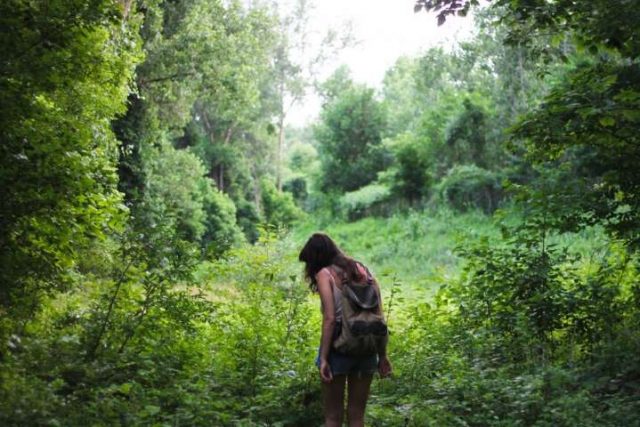
More people than ever are travelling alone, and women are taking the initiative to venture abroad by themselves. In the UK, searches for “solo travel” has had a 131% increase between 2016 and 2019. A recent survey by Booking.com’s found that of 20,500 international travellers, 40% took a solo trip last year and 21% planning to travel alone in future. According to the company, women are more likely to travel alone, with 65% of American women travelling independently.
The main fear many people say is the reason they don’t want to travel alone is that they’re afraid for their safety. To help make the most of a solo travel experience, the experts at Baltic Travel Company, have listed the top tips for travelling solo as a female.
- Be adventurous but don’t take unnecessary risks
You can pick somewhere that’s challenging to explore, but still be safe on your travels. Greenland is great as the terrain is rugged and transport is scarce, but the location itself is very safe. Scandinavia and the Baltics are also safe options for solo female travellers. The cultures are friendly, there’s a high proportion of English speakers, and there’s little conflict or violence – perfect for women looking to travel by themselves!
If you’ve got your heart set on a location, one way to check if it’s safe for solo travel is to look at the UK Embassy’s guidance. You can look up foreign travel advice on the country you’re travelling to here. This will give you all the details you need to know on changes to payment policies, visa advice, any threat warnings and lots of other useful tips.
- Research and prepare everything beforehand, so that you can be spontaneous when you want
Although it might feel like you’re sacrificing spontaneity for safety, you can still prepare and research your trip beforehand without taking away the magic of exploring on a whim.
When researching your trip, try looking at review sites such as TripAdvisor to scope out any issues beforehand, such as unreliable transport or dodgy guides. It’s better to use services that can speak relatively good English or your native tongue, and that have quick responses, so you know that you can use them in an emergency without issue. Preparing ahead of time for the worst means you can relax a bit more when you’re out there!
If you’re thinking of going to festivals and events, think about finding somewhere nearby to stay that won’t require long walks or public transport journeys late at night by yourself. Bars with live music are often more enjoyable and safer than clubs – why not enjoy the culture by finding cool local watering holes instead of larger clubs?
- Be clever with your location and transport
Finding accommodation that’s central will cut down on the amount of potential late-night travel you may have to do. Staying central has its monetary perks, too – you can save money by walking everywhere! City trips are ideal for solo travellers for precisely this reason.
It’s a good idea to organise transfers for when you arrive. Being met by someone who you’ve vetted beforehand and that will transport you safely can make you feel more confident in starting your journey.
- Limit your technology and remember your offline backups
Though using your mobile is best to use for up-to-date information, make sure you have a local map handy! There’s nothing worse than having your phone die and losing all your travel information for a few hours when you really need it. Download useful things such as restaurant recommendations offline in case you have no internet access available. There are some great apps that let you download maps and useful info offline – perfect!
If you’re not taking professional photographs, you’ll only really need a mobile for maps, access to the internet and holiday snaps. Leave the expensive tech at home where it’s safe and stick to technology that can multitask.
- Pack appropriately
Travel light! If you can pack hand luggage only, it’s quicker to get through the airport and easier to keep track of your belongings. You also won’t run into problems if your suitcase gets lost
Remember to take the appropriate gear! If you’re travelling somewhere for a cold adventure, such as the Nordics and the Arctic, it’s better to invest in the appropriate gear for the weather than risk running into issues.
- Money safety
It’s better to use your bank card for the most part, and not carry too much cash. Though you should always have a little cash in reserve for getting out of sticky situations, your card is more likely to keep your money safe and can easily be reported stolen. Take more than one card with you in case you run into issues using one. It’s worth looking into prepaid cards, as this can help you avoid the risk of losing your card. If you do run into issues and lose your purse, many mobile banking apps can help you to report a theft easily.
If you’re visiting a city, it’s often wise to buy a metro or a city card. Rather than spending money on each individual attraction and each mode of transport, this type of card is almost a key to the kingdom – many will include tourist attractions and buses, trains and more in one all-inclusive price.
Solo travellers are also likely to encounter single supplements when they travel. These are on average around £400 for accommodation in Europe, but they can be as low as £200 if you book early. Package tours are more likely to offer a lower cost overall, as the supplements can add up over longer trips. You can also buddy up with other solo travellers with some companies, so if you’re looking to make new friends, this can be a good option to investigate.
- Insurance – you never know when you might need it
Although the hassle of buying insurance might seem like it’s not worth it, it is recommended to get travel and belongings insurance to avoid problems should the worst happen.
If you’re travelling somewhere that could encounter some more exotic issues, such as civil unrest or “acts of God” (remember the Icelandic volcano eruption of 2010?), there’s an insurance package to cover it.
The main thing to remember is not to stress! Thousands of women have travelled solo and had a wonderful, once-in-a-lifetime experience.






I just get fascinated by your writing. I loved the way you enlisted your thoughts about Women’s Solo Travel and that’s what I appreciate the most.
I also tried to put together my thought regarding Female Solo Traveling through this article in a slightly different way – https://www.gogaffl.com/blog_posts/why-women-should-travel-solo
It’d be awesome if you check out & let me know your thoughts about it. Looking forward to your feedback.